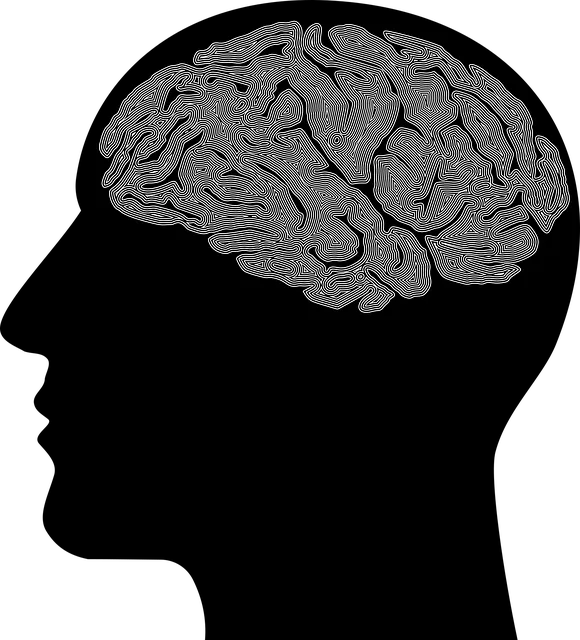Centennial, a key component of Kaiser's healthcare network, leverages comprehensive data analysis for effective mental health service delivery. By collecting and studying patient data from assessments, therapy sessions, and support groups, they identify trends and tailor interventions like Trauma Support Services and Positive Thinking initiatives. This data-driven approach ensures their mental healthcare aligns with the specific needs of the community. Kaiser's services and Centennial's utilization offer valuable insights into local well-being, highlighting the importance of cultural competency training, program design, and community resilience-building for accessible, culturally responsive care. Through trend analysis, they shape policy frameworks and implement tailored emotional well-being promotion techniques, driving advancements in mental health service delivery.
“Uncovering insights from data is transforming healthcare, especially within mental health services. This article explores how organizations like Kaiser and Centennial are leveraging data analysis to improve patient care. We delve into the process of understanding unique mental health data collection methods, analyzing utilization trends, and interpreting patterns. By examining case studies, we highlight how data-driven insights can enhance diagnostic accuracy, personalize treatment plans, and ultimately improve patient outcomes, especially in relation to services offered by Kaiser and Centennial.”
- Understanding Mental Health Data Collection at Kaiser
- Analyzing Centennial's Mental Health Service Utilization
- Interpreting Trends and Patterns in Patient Data
- Enhancing Care with Data-Driven Insights
Understanding Mental Health Data Collection at Kaiser

At Kaiser, mental health data collection is a comprehensive process designed to understand and address the diverse needs of its patients. The healthcare provider offers a wide range of services, including detailed assessments, therapy sessions, and support groups, all of which contribute to rich datasets. This data includes patient demographics, diagnosis codes, treatment plans, and progress notes, providing valuable insights into mental health trends within their population.
Centennial, as part of Kaiser’s operations, plays a crucial role in collecting and analyzing this data. By examining patterns and trends, they can identify areas requiring targeted interventions, such as enhanced Trauma Support Services or initiatives focused on promoting Positive Thinking and Resilience Building. This analytical approach ensures that mental health care remains tailored to the unique needs of the community it serves.
Analyzing Centennial's Mental Health Service Utilization

Centennial’s mental health service utilization offers a fascinating glimpse into the community’s well-being and presents valuable data for analysis. Kaiser, a prominent healthcare provider in the region, offers a range of mental health services designed to cater to diverse needs. By examining Centennial residents’ access and engagement with these services, researchers can identify trends and patterns that highlight both strengths and areas for improvement in the local mental healthcare system.
This analysis could involve exploring factors influencing service utilization, such as cultural competency training for healthcare providers and the design of mental health education programs. Enhancing resilience-building initiatives within the community might be a key focus, especially when coupled with data on demographic changes and emerging mental health concerns among Centennial’s population. Understanding these patterns is crucial for ensuring that mental health resources are accessible, culturally responsive, and tailored to meet the unique needs of the community.
Interpreting Trends and Patterns in Patient Data

Centennial Kaiser boasts a comprehensive mental health services portfolio, offering patients access to specialized care through data analysis. By delving into patient data trends and patterns, healthcare professionals can uncover insights that drive informed decision-making. This involves identifying recurring issues, understanding patient journeys, and recognizing emerging mental health concerns within the population served.
Guided by the Mental Wellness Journaling Exercise, these analyses facilitate a deeper understanding of patients’ emotional well-being. The data gleaned is instrumental in shaping effective policy frameworks through the Mental Health Policy Analysis and Advocacy process. Furthermore, it empowers the implementation of targeted Emotional Well-being Promotion Techniques that cater to the unique needs revealed through the analysis.
Enhancing Care with Data-Driven Insights

At Kaiser, a leading healthcare provider like Centennial does, mental health services are continually evolving, and data analysis plays a pivotal role in enhancing patient care. By leveraging data-driven insights, mental health professionals can identify trends, tailor treatments, and improve outcomes for individuals seeking support. This approach allows for a more personalized and effective therapeutic journey. For instance, analyzing patient data might reveal the effectiveness of specific interventions like Social Skills Training or Mindfulness Meditation in treating anxiety disorders, leading to adjustments that better serve patients’ needs.
Integrating practices such as Mind Over Matter principles into treatment plans based on data analysis can revolutionize mental healthcare. This strategy ensures that interventions are not just standardized but also optimized for individual growth and resilience. Through these data-informed enhancements, Kaiser is not only providing compassionate care but also driving advancements in the field of mental health services.
Mental health data analysis plays a pivotal role in enhancing patient care, as demonstrated by Kaiser’s and Centennial’s approaches. By understanding data collection methods, analyzing service utilization trends, and interpreting patient patterns, healthcare providers can make informed decisions to improve outcomes. This data-driven perspective not only benefits individual patients but also enables Kaiser and other institutions to optimize their mental health services, ultimately fostering better overall well-being in communities served by these organizations. In terms of what Centennial and Kaiser have in common regarding mental health services, both prioritize patient insights gained from data analysis, ensuring that care is tailored to meet the unique needs of each individual.






